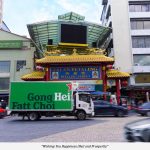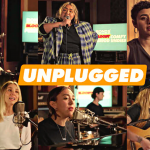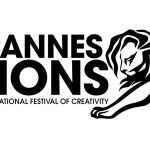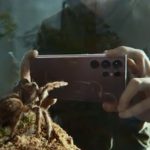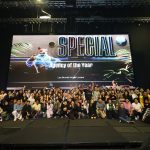Leo Burnett Malaysia held its 33rd annual Cannes Prediction, the most awaited screening prediction in the advertising industry with an 90 percent accuracy track record in predicting campaigns with a strong likelihood of winning the festival’s coveted Lions. The 66th Cannes Lions International Festival of Creativity is broadcasted virtually from yesterday to June 25.
The 2021 Cannes Predictions is the result of a yearlong evaluation of work that reflects global industry trends. In a turn of tradition, this year’s selection represents competitive work from both 2020 and 2021, following the disruption of COVID.
“Every year, we look forward to Cannes Predictions showcasing the most creative, innovative and bold campaigns (and) this year, the shortlists are unique because the ideas that emerged during the pandemic are not only fearless and innovative but genuinely exceptional in today’s world,” said CEO of Publicis Groupe Malaysia and Global Client Leader – Asia Pacific, Neil Hudspeth. “They serve as inspiration to the industry and benchmarks for us all in Malaysia.”
The Cannes Predictions list this year is curated by Leo Burnett’s new Global Chief Creative Officer, Chaka Sobhani.
Chaka was named to the global role in May alongside her continued role as CCO of Leo Burnett London, where she led Cannes Lions-winning work. A longtime champion of the festival, she also served as a jury member for Outdoor Lions this year.
The brand work showcased this year reflects global trends fueling the industry with the following five trends:
Brands’ Role In Health
Amid an unprecedented global event, brands took up the cause of COVID, whether engaging consumers in their own health and safety or championing ground-level efforts to combat the novel virus. There’s no shortage of campaigns that tackled the disruption, but some stand out among the rest.
Thai Airlines’ “Stay Home Miles Exchange” actively encouraged people not to travel by rewarding those who remained safely separated from others at home. With geolocation technology, users were able to prove they’d stayed put while earning actual redeemable miles—effectively building customer loyalty while ensuring their safety.
And as healthcare professionals everywhere worked to stave the virus from spreading, Unilever Dove launched “Courage is Beautiful,” a raw exploration of its nearly two decade-long brand premise, “real beauty.” The campaign used powerful photography to capture the weary, masked-impressed faces of these frontline heroes in an effort that also included a charitable component to deliver much-needed personal protective equipment to where it was needed.
Culture Cravings
Brands intersecting with culture has always been a winning combination, but at a time when people were desperate for entertainment and engagement of every kind, cultural cravings hit a high point – and some brands capitalized on the appetite in undeniable ways.
When Beyonce’s latest collection of her Ivy Park fashion line made its debut, fans noticed that it appeared inspired by the uniforms worn by Popeye’s restaurant employees. The brand took a cue and turned those outfits into a line of its own. “That Look From Popeyes” sold out instantly, turning legions of enthusiasts into walking influencers, and racked up media in a way that only Bey can help do. Beyond the fashionable, it was often the off-the-wall ideas that resonated with many.
Oreo found inspiration for its “Doomsday Vault” when news of a potential earth asteroid strike broke, a Twitter user wondered who would save Oreos in the event of a catastrophe? The brand didn’t waste any time guessing, enlisting a team to build a fortified vault — the type used to store and protect seed stock — in the hinterlands of Norway designed to protect the precious biscuits from harm. The unusual ambition of the project led many to question how real it all was, boosting the brand’s talk value even further and more importantly, just making us smile.
Tech-Enabled Experiences
If we weren’t already tech-obsessed, this became the year. It may have been out of necessity, but the result of brand innovations in this space was no less inspired. Like when Michelob Ultra’s “Ultra Courtside” brought NBA fans in the U.S. closer to the action during a basketball season taking place in a virus-isolated bubble. With the help of Microsoft and its Teams technology, Michelob let winners sit ‘courtside’ digitally and chat with ex-league legends in exclusive chat rooms.
Meanwhile, Tinder leveraged new ways of storytelling to build culture and community with its “Swipe Night” campaign. The brand’s ubiquitous “swipe right, swipe left” matchmaking interface was used in a fresh new way, layering on a choose-your-own-adventure style gaming element that invited users into a richer experience that saw matches made on the choices made – save the puppy or the person? Engagement and time spent in the app massively boosted, as well as hopefully some more successful love / lust matches.
All the Feels in Film
A big, beautiful, broad category that invokes the feels to match, this year’s film frontrunners span an incredible array of viewing experiences deserving of attention. You have Thailand’s distinct sense of humor come to the fore with Central Department Store’s “Shop Unfriend,” mashing up trademark absurdity and unexpected twists we’ve come to expect to leave you speechless in the best way.
Then there’s the beautifully crafted and told “ScissorHandsFree” for Cadillac EV, a contender that picks up on the narrative of a classic Hollywood tale to illustrate a product benefit with natural elegance and watchability that leaves you feeling both nostalgic and inspired.
If feeling is the gold-standard, look no further than “You Love Me” from Beats by Dre, a love letter to the Black community that addresses its complicated relationship with America. Grippingly told, the piece offers a masterclass, with impeccable cinematography, writing, editing, music and more. Above all else, it’s the visceral punch the piece delivers that leaves the strongest impression.
Brands Taking a Stand
Last but never least, this was a year of reckoning for corporations when it came to raising their voices and taking a stand on issues beyond their immediate purview. It’s a conversation that’s been percolating for many years, but finally became a call to action for brands to truly catalyze change. Mastercard’s “True Name” falls in this category, seeking to address challenges of misrepresentation that affect some members of the LGBTQIA+ community.
The brand introduced “True Name,” a new feature that allows people an easier way to display their chosen name on their card. Nearly 70 percent of transgender and nonbinary people go by names other than those by which they’re legally recognized, so the initiative stands to make a big difference. Mastercard’s been working with banks to make the new product available to as many people as possible; a simple but brave, impactful idea with potential to grow.
Here is the full list of the Top 20 Cannes Contenders:
- Nike “You Can’t Stop Us / Sports” // Wieden + Kennedy (Portland, USA)
- Mondelez Oreo “The Oreo Doomsday Vault” // The Community (Miami, USA)
- Essity – Bodyform / Libresse “#WombStories” // AMV BBDO (London, UK)
- Beats By Dr. Dre “You Love Me” // Translation (New York, USA)
- Thai Airways “Stay Home Miles Exchange” // Wunderman Thompson (Bangkok, Thailand)
- Burger King “Moldy Whopper” // INGO Stockholm / David Miami / Publicis Bucharest
- Tinder “Swipe Night” // 72andSunny (Los Angeles, USA)
- Diesel “Francesca” // Publicis Groupe (Milan, Italy)
- Popeyes ‘That Look From Popeyes” // GUT (Miami, USA)
- Dove “Courage is Beautiful” // Ogilvy (London & Toronto)
- Central Department Store “Shop Unfriend” // Wolf BKK / Factory01 (Bangkok, Thailand)
- Reporters Without Borders “The Uncensored Library” // DDB Berlin / MediaMonks Hilversum
- Tourism New Zealand “Good Morning World” // Special Group New Zealand / Special Group Australia
MARKETING Magazine is not responsible for the content of external sites.


